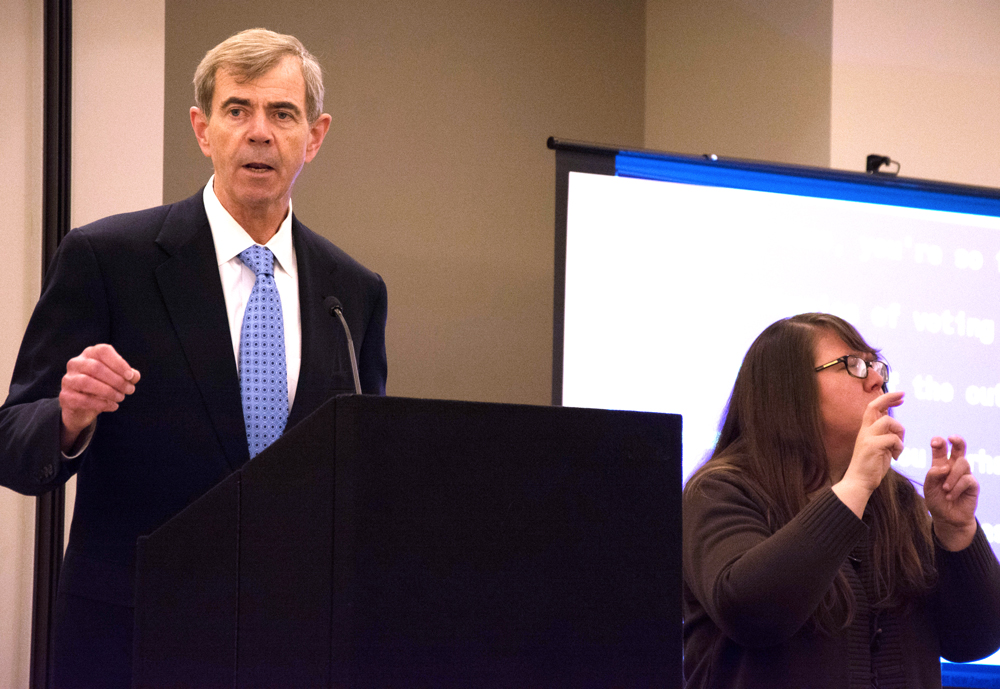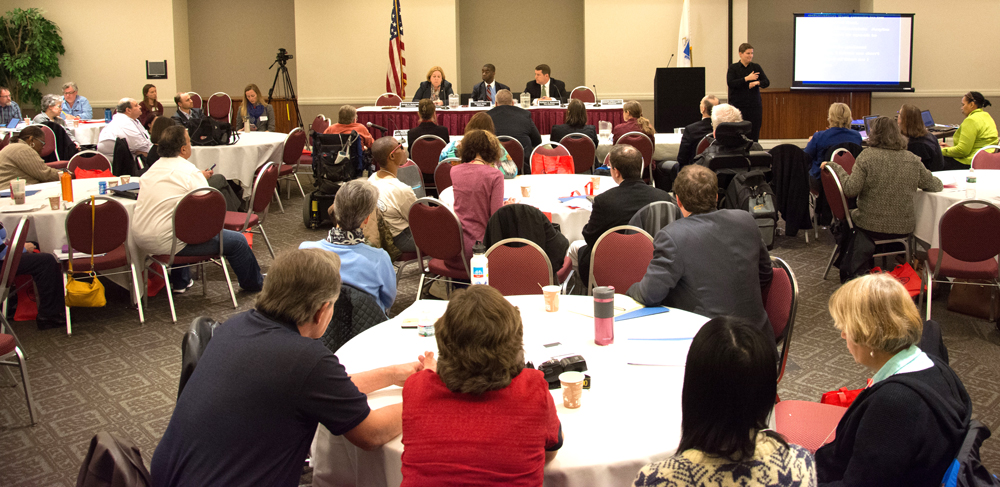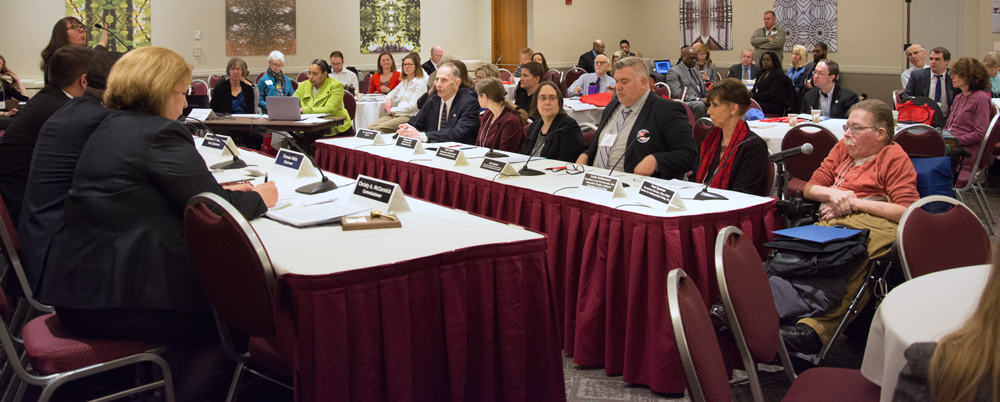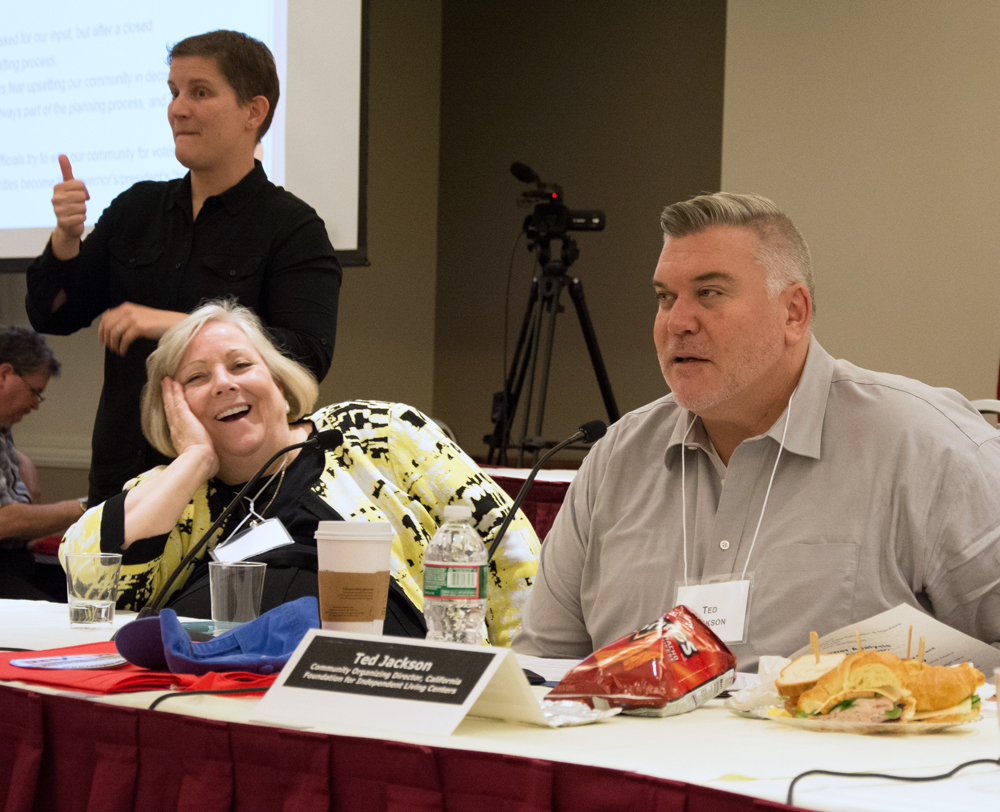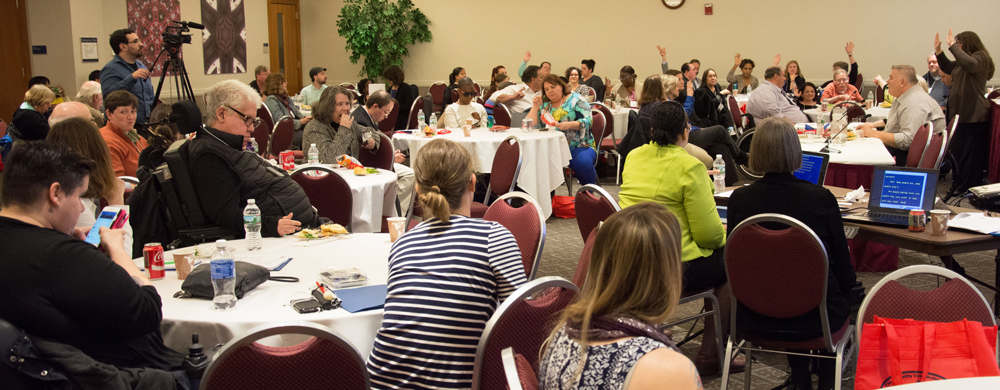The REV UP Forum was held on April 27 in Boston, and hosted by the Disability Law Center. The Election Assistance Commission heard testimony from our state and local voting officials, as well as testimony from the Disability Community. In the afternoon, we held a working session of REV UP.
First, the Election Assistance Commission is very interested in understanding the issues of voting for people with disabilities. Everyone agreed that our state and local officials have worked hard to improve voter access at every level, and have had some major successes (State voters website for example). And everyone agreed that there is still work to do… with more training for local officials being high on the list, along with universal access innovation.
Submitted testimony is available on the EAC Public Hearing page. Voting independently is everyone’s right, but it continues to be a struggle at many polling places.
Second, we heard some great ideas from Ted Jackson (CA Foundation for Independent Living Centers) who has a lot of experience in GOTV campaigns for the LGBTQ community and the Disability community.
While we did not have time to definitively set out a strategy, we hope everyone is on the same page and agrees that as a group, we can increase the number of people with disabilities who vote, and that people with disabilities can become a factor in local, state and national decisions.
